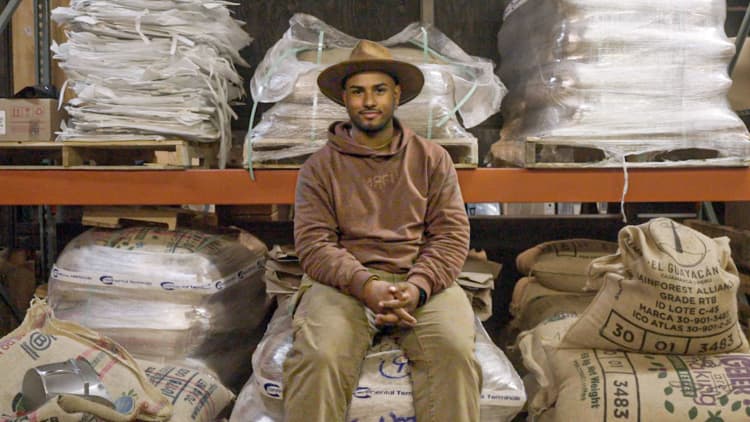Family reunions in packed houses, get-togethers with friends and traveling — sometimes across the country, just to attend those events — all marked the holiday season until the Covid-19 pandemic hit.
The virus instantly transformed the holidays, forcing many Americans to break long-standing traditions and grapple with a new reality: Gathering with loved ones can potentially put people's health at risk.
Now, nearly three years after the virus first sent the U.S. into lockdowns, are the tides turning back toward pre-pandemic habits — or has Covid permanently changed the way Americans celebrate?
The answer, it seems, is both.
Americans have increasingly returned to in-person gatherings over the past year. This year's Thanksgiving, New Year's and other end-of-the-year festivities may feel like the pre-pandemic holidays for many households.
But Covid has still changed the way we celebrate with others, even if we don't fully realize it, experts say — and it's hard to tell whether the holidays will ever fully revert back to how they were before March 2020.
"At least for the time being, we know it has really changed the whole tenor of the way in which we engage with people in almost every circumstance, including the holidays," Jessica Borelli, a psychological science professor at UC Irvine, tells CNBC Make It.
Here are three fundamental ways the pandemic has changed the holidays for Americans, from Covid safety and family traditions to who we choose to spend our time with.
Holiday planning is more stressful
In some ways, get-togethers were easier early in the pandemic, when vaccines weren't available and health mandates were still in place: Most people simply didn't host them.
Now, everyone has their own attitude towards Covid risk, making it increasingly difficult to plan holiday gatherings where everyone is comfortable.
You might need to balance the preferences of someone completely comfortable indoors without a mask and someone who still avoids crowded spaces or eating around others. Pre-pandemic considerations, like making events comfortable for elderly guests sensitive to temperature or parents who want to keep a close eye on their children, still exist.
Even if the host and guests are all on the same page, everyone still likely has to spend at least a moment thinking about Covid, adding to the stress.
"Covid adds a whole different layer of consideration," Borelli says. "Hosts have to have conversations with each individual party and ask, 'How do you feel about gathering? Is it OK if we serve food indoors?'"
Some Americans are letting go of tradition
The first year of the pandemic forced many to let go of their annual traditions, cherished or not.
That "opened people's eyes to the possibility of change and ways of celebrating that were unthinkable before," says Kristen Carpenter, a Columbus, Ohio-based clinical psychologist. "Holiday celebrations were so steeped in tradition for many. There was an assumption that each year is the same. The past two years showed us that it doesn't have to be."
Some people are choosing to return to their traditions, especially now that "we've returned to most forms of normalcy," Carpenter says. Almost half of U.S. adults expect to host more social gatherings this holiday season than they have since 2019, according to a November survey by home improvement company Black & Decker.
Others might be perfectly content not bringing back their traditions. Staying home instead of traveling across the country, or attending smaller gatherings instead of large ones, can have plenty of benefits.
A November survey by professional services firm Deloitte found that more Americans are deciding to stay home between Thanksgiving and mid-January, with intent to travel down 26% compared to a year ago.
"Now that tradition has been interrupted, I think we will see people more dictated by personal preference," Carpenter says. "There's less of an emphasis on some traditions people didn't even like doing before."
People are more selective about their guest lists
The pandemic pushed a lot of people to prioritize who — or what — truly matters to them. That's made some Americans more selective about who they choose to spend their time with during the holidays, says Borelli.
On the one hand, that's a good thing, she says: You can spend more time with people who share the same Covid comfort levels or other beliefs as you do, rather than others you might clash with.
But it's also created a "much more disconnected, disengaged society," Borelli says. Spending time with a wide array of people has benefits, she adds: It can expand your knowledge, open your eyes to perspectives you've never considered before and help you learn to navigate difficult social situations.
"I worry about the trend that we're only choosing social interactions that feel good all the time," Borelli says. "I do think there are some benefits to having some that are not always fulfilling on every level."
Sign up now: Get smarter about your money and career with our weekly newsletter
Don't miss:



